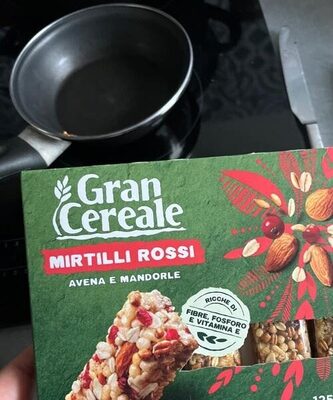
Barcode: 8076809583718
Gran céréale
DOUBTFUL
📝 Reason: This product includes religiously uncertain substances that could be Halal or Haram. Definitive classification requires more detailed production information.
🏷️ Category: Snacks, Sweet Snacks, Bars, Cereal Bars
📄 Certificates: N, /, A
Ingredients:
Details
Understanding the Halal Status of Gran céréale
Gran céréale is a popular snack, known for its blend of crunchy cereals and wholesome oats. However, its Halal status is currently categorized as “Doubtful” due to certain ingredients in its formulation. For consumers who prioritize Halal dietary choices, it is crucial to examine the components of this product in detail to make informed decisions.
The Ingredients Breakdown
The ingredient list for Gran céréale is extensive, providing a variety of textures and flavors. Here’s a detailed look at the ingredients:
- Oat flakes (19.3%) – Generally, oats are considered permissibly Halal and are a primary ingredient providing fiber and nourishment.
- Whole wheat (16.4%*) – Whole wheat is also Halal, adding to the health benefits of this snack.
- Crunchy cereals (11%*) (includes rice flour, wheat flour, wheat malt, wheat gluten, sugar, dextrose, salt, caramelized sugar) – These components are permissible in Islam, ensuring no concern here.
- Almonds (9.5%*) – A healthy nut, almonds are Halal and contribute to the product’s crunchiness.
- Soluble fiber: oligofructose – A plant-based source of dietary fiber, this ingredient is Halal-friendly.
- Dried sweetened cranberries (8.2%) (includes sugar, cranberries (3.4%*), sunflower oil) – While sugar and oil are permissible, it is essential to check the sources of the sweeteners used.
- Glucose syrup & inverted sugar syrup – Both syrups are generally permissible unless sourced from Haram items.
- Sunflower oil & sugar – These are common ingredients used in snacks and are Halal compliant.
- Hazelnuts – Another Nut that is completely Halal.
- Humectant: glycerol (E422) – Usually, glycerol can be derived from both Halal and Haram sources, creating uncertainty about its permissible status.
- Emulsifier: lecithin from soy – As it is derived from soy, it is Halal.
- Acidity regulator: citric acid – Generally considered Halal, derived from fruits.
Ingredient and E-Number Analysis
Among the listed ingredients, it is noteworthy that most have been categorized as permissible in Islam. However, E422 (glycerol) introduces doubt regarding its sourcing. In general, glycerol can come from either plant-based or animal-derived origins, which leaves a gap in definitive Halal confirmation.
The Doubtful Halal Status
Despite most ingredients being acceptable under Halal dietary laws, the uncertainty surrounding humectant: glycerol gives rise to a doubtful Halal classification. This means that unless more detailed production information is available confirming its Halal source, consumers must tread cautiously.
What Should Halal Consumers Do?
If you are a consumer seeking Halal options, it is essential to consider the overall composition of Gran céréale. While numerous ingredients have been verified as Halal, relying solely on the product’s overall designation as “Doubtful” might be wise, particularly if strict adherence to Halal guidelines is your priority.
Brand and Certification Context
Gran céréale does not currently display any Halal certification, which is critical for consumers aiming for absolute certainty in their dietary choices. The absence of certifications raises red flags, amplifying the need for caution before consumption.
Final Thoughts
Ultimately, while Gran céréale features many ingredients that can be classified as Halal, the presence of glycerol places it in a category of uncertainty. We recommend that consumers look for clearly certified Halal products for peace of mind. Understanding ingredient sourcing and remaining informed about any potential religious implications is essential for those adhering to Halal dietary needs.
